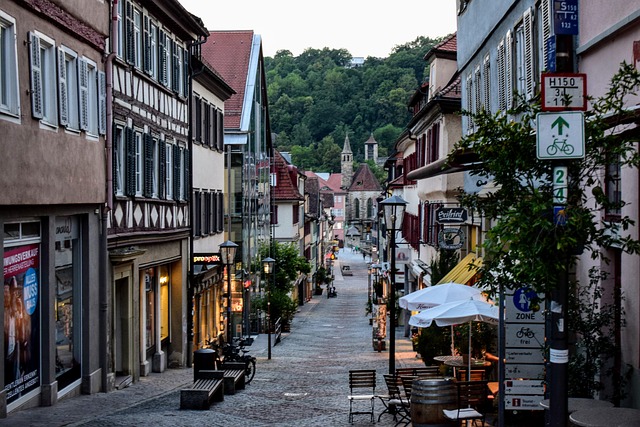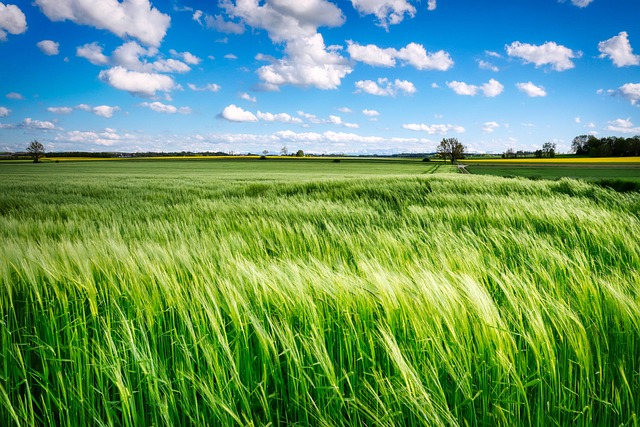Junction City, established during the Great Depression, stands as a testament to human resilience. Founded at a railway junction, it once thrived with agricultural and merchant activities. During the economic crisis, the city faced significant challenges, but its residents demonstrated adaptability. Through community support, local initiatives, and an emphasis on agriculture, Junction City's history showcases the resilient spirit of the Midwest during tough times, preserving its unique founding narrative.
“Discover the resilient spirit of Junction City through its tumultuous journey during the Great Depression. This article delves into the birth of the city, tracing its founding history as a pivotal junction in regional development. We explore the economic downturn’s harsh realities, its impact on the community, and the unique challenges residents faced. From adaptations to survival strategies, we uncover the resilience that defined this era. Learn from the legacy and lessons left behind, offering valuable insights into how a small city navigated one of history’s most trying periods.”
- The Birth of Junction City: A Historical Overview
- Economic Landscape During the Great Depression
- Impact on the Local Community
- Challenges Faced by Residents
- Adaptations and Survival Strategies
- Legacy and Lessons Learned from That Era
The Birth of Junction City: A Historical Overview

Junction City, a small yet resilient community, emerged during the challenging times of the Great Depression. Its founding story is intertwined with the economic and social landscape of that era. In the early 20th century, as the nation grappled with unemployment and economic hardship, visionary pioneers sought new opportunities in the heart of America’s Midwest. This region, known for its fertile land and agricultural heritage, became a magnet for those seeking a fresh start.
Among these pioneers was a group of individuals who recognized the potential of this strategic location, where several railway lines converged—hence the name Junction City. They envisioned a thriving community that could cater to travelers, farmers, and merchants passing through. With determination and hard work, they transformed the area into a bustling hub, laying the foundation for what would become a vital stop along the rail network. The city’s founding was a testament to human resilience and adaptability during one of America’s most tumultuous periods.
Economic Landscape During the Great Depression

During the Great Depression, Junction City, with its rich founding history, faced economic challenges that left an indelible mark on the community. The city’s early growth was fueled by agricultural and railroad interests, but as the nation’s economy nosedived, these pillars began to falter. The once-vibrant bustling streets witnessed a significant decline in business activity, with many local industries struggling to survive.
The economic landscape of Junction City became a microcosm of the national crisis. Unemployment rates soared, and many residents found themselves grappling with poverty. The city’s diverse economy, which at one time encompassed agriculture, manufacturing, and transportation, was hit hard. This period served as a testament to the resilience of Junction City’s folks, who adapted to the harsh realities by fostering community support networks and innovative ways to sustain their livelihoods.
Impact on the Local Community

The Great Depression had a profound impact on Junction City, Kansas, mirroring the national economic downturn. As a city with a rich founding history dating back to the 1800s, Junction City’s residents faced unique challenges. The once bustling community experienced a significant drop in economic activity, leading to high unemployment rates and a decline in local businesses. Many families struggled to make ends meet, and the depression left an indelible mark on the social fabric of the city.
The founding history of Junction City, characterized by its role as a transportation hub and agricultural center, was put to the test during these turbulent times. The depression affected farmers, who relied heavily on market demand for their crops, and transport workers, whose jobs were precarious. Despite the hardships, the community’s resilience shone through, with local initiatives and support networks helping to alleviate some of the suffering.
Challenges Faced by Residents

Junction City, with its rich founding history, found itself grappling with the harsh realities of the Great Depression just like many other communities across America. The economic downturn had a profound impact on the city’s residents, who faced a myriad of challenges. Unemployment rates soared as businesses struggled to survive, leading to a significant decline in local commerce and industry. Many families were forced to leave their homes in search of better opportunities elsewhere, leaving once bustling neighborhoods quiet and desolate.
The daily lives of Junction City residents became a struggle for basic necessities. Food shortages and rising prices made it difficult for families to put food on the table. The lack of social safety nets and government assistance programs left them vulnerable, forcing many to rely on community support and charity to get by. Despite these hardships, the spirit of resilience shone through as folks pulled together to help one another during this trying time.
Adaptations and Survival Strategies

During the harsh economic times of the Great Depression, Junction City, with its rich founding history, had to adapt and devise survival strategies to weather the storm. The city’s early settlers had established a strong agricultural base, which became a key resilient factor. As unemployment soared across the nation, many in Junction City turned to farming as a primary source of sustenance and income. They adopted innovative techniques to maximize crop yields and implemented sustainable practices, ensuring a steady food supply for their communities.
These adaptations were not limited to agriculture; the city’s residents also found creative ways to support local businesses and services. The spirit of community resilience shone through as people came together to share resources and skills. Local markets flourished, providing a platform for farmers to sell their produce and artisans to showcase their crafts. This mutual support network helped preserve the fabric of Junction City during one of America’s most challenging periods, leaving an indelible mark on its founding history.
Legacy and Lessons Learned from That Era

Junction City, with its rich founding history, offers valuable lessons from a bygone era. The Great Depression left an indelible mark on this small community, shaping its resilience and resourcefulness. During these challenging times, residents of Junction City united, showcasing a strong sense of community. They adapted to the circumstances, finding innovative ways to support one another and preserve their way of life.
This period serves as a historical reminder that even in the face of immense hardship, people can come together and create lasting legacies. The experiences of Junction City during the Depression offer valuable insights into economic resilience, community spirit, and the power of local initiatives. Understanding this legacy encourages us to reflect on the importance of unity and adaptability in navigating future crises.






